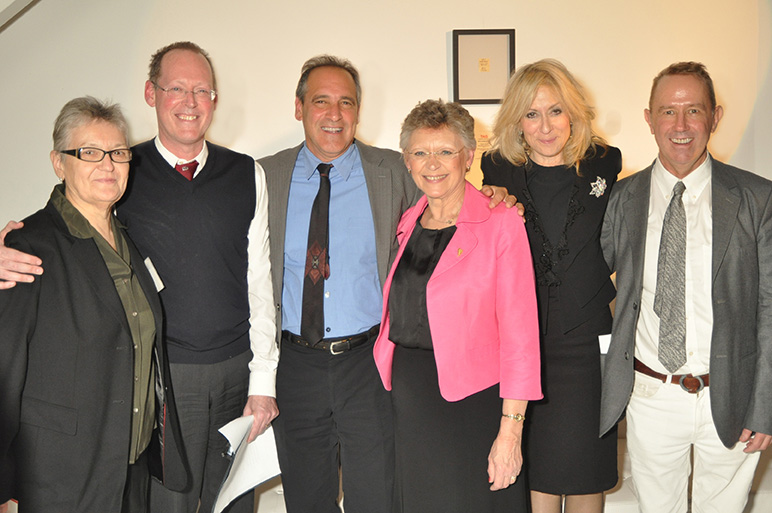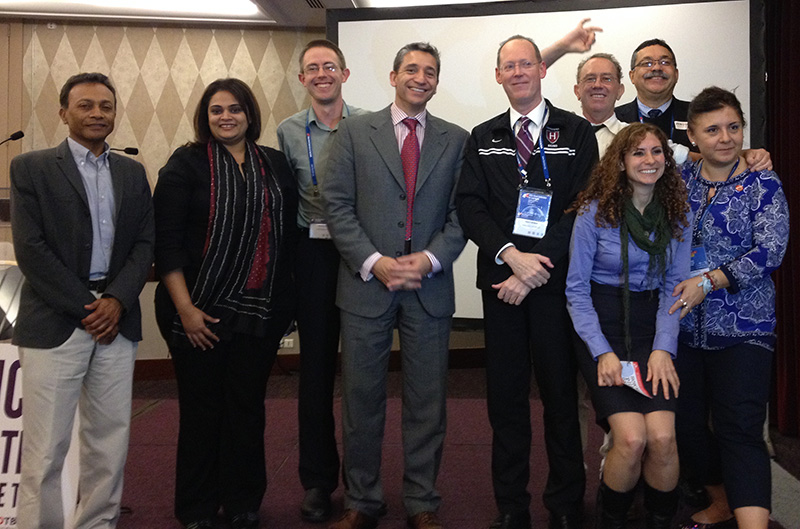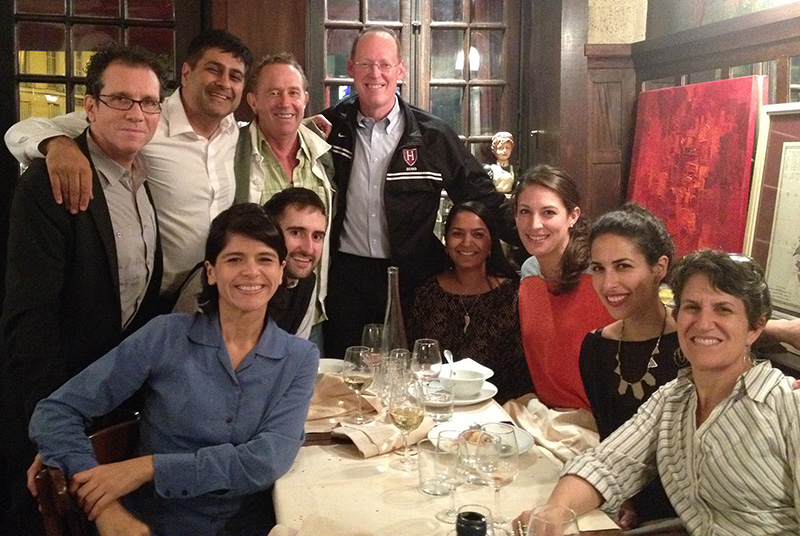— In Memoriam Paul E. Farmer, MD, PhD —
(26 October 1959 – 21 February 2022)
A Reflection by Mark Harrington, Executive Director of TAG
If everyone has a right ‘to share in scientific advancement and its benefits,’ where are our pragmatic efforts to improve the spread of these advances? … even as our biomedical interventions become more effective, our capacity to distribute them equitably is further eroded. Prisoners are dying of ineffectively treated MDR-TB. Article 27 of the Universal Declaration of Human Rights, which insists that everyone has a right ‘to share in scientific advancement and its benefits,’ would have us raise questions about the fact that representatives of wealthy donor nations—relief workers—are giving prisoners drugs to which their infecting TB strains have documented resistance. Thus are the rights of the prisoners violated by the logic of cost efficacy…
— Paul Farmer. Pathologies of Power: Rethinking Health and Human Rights, 1999[i]
The distribution of AIDS and tuberculosis—like that of slavery in earlier times—is historically given and economically driven… Social inequalities are at the heart of structural violence. Racism of one form or another, gender inequality, and above all brute poverty in the face of affluence are linked to social plans and programs ranging from slavery to the current quest for unbridled growth… racism and related sentiments – disregard, even hatred for the poor – underlie the current lack of resolve to address these and other problems squarely… Structural violence is the natural expression of a political and economic order that seems as old as slavery.
— Paul Farmer. An Anthropology of Structural Violence, 2001[ii]
TAG’s staff and board of directors are filled with grief at the premature death of Dr. Paul Farmer, who illuminated and changed our world with his combination of passion, intelligence, solidarity with the poor, and determined will for social justice. We are filled with gratitude for his work, his legacy, and the worldwide networks of researchers, activists, clinicians, and community health workers which make up Partners in Health (PIH), which Paul co-founded in 1987.
Over the past three decades as TAG’s work moved from the domestic US HIV epidemic to the intertwined global pandemics of HIV, tuberculosis, and HCV, we found in Paul and in Partners of Health allies who became cherished companions in our common work to combat these three diseases with a special focus on the poor and marginalized.
In 2001 Paul discussed how the social inequalities which underlie and drive these pandemics are formed by historic and economic forces by racism and hatred for the poor.
Among our closest collaborations with Paul and his colleagues has been our work to revolutionize the diagnosis, treatment, and cure of tuberculosis (TB), which by itself and among people with HIV is among the leading infectious causes of death. Partners in Health waged a lonely campaign throughout the 1990s to force the World Health Organization (WHO) to expand its TB work to combat the emerging threat of multi-drug resistant tuberculosis (MDR-TB), which was then undermining TB programs across Eastern Europe and increasingly in sub-Saharan Africa. Thus, PIH became crucial comrades when TAG began working to advocate with WHO for better policies vis-a-vis TB/HIV coinfection in the years from 2000, when we began our work with international activists from South Africa’s Treatment Action Campaign (TAC) and around the world.
In 2010 Paul and I, with colleagues, called for “a bold new vision at the Stop TB Partnership,”[iii] and in 2011 for “zero deaths from tuberculosis,”[iv] in The Lancet, given that the disease has been curable since the early 1950s – all that has been lacking is the political will to eliminate it and funding for research and programs to make this a reality.
Although the Stop TB Partnership and WHO adopted the “zero deaths, zero cases, zero TB stigma” vision we called for, political will, funding, and research failed to keep pace; following the emergence of the COVID-19 pandemic of the past two years, global progress against TB has been set back to levels last seen in 2008.[v]
In 2012, at the Research in Action Awards which commemorated TAG’s 20th anniversary, Paul was an honoree and was introduced by Chelsea Clinton, who gave a moving introduction highlighting how Paul often visited the White House in the 1990s when she lived there. Paul honored TAG with a beautiful talk which wove together our common work on social justice, public health, and human rights.
As well as an honored role model and a critical ally, Paul was also a wonderful friend. Over the years I came to know him personally and professionally as we participated in many events together ranging from demonstrations and symposia at World Lung Health conferences to dinners with him and his colleagues from Partners in Health and to guest presentations at classes he taught at Harvard’s Department of Global Health. Paul was kind, warm, humble, and could be very funny.
TAG extends our condolences to Paul’s wife, children, Partners in Health colleagues, and to the millions of people whose lives his work enabled and extended.
He leaves a massive legacy, an illuminating series of books, lectures, and articles; and will always hold a place in our hearts and in our work. Rest in peace, beautiful man — you changed the world forever, and you will be missed forever too.



# # #
[i] Paul Farmer. Pathologies of power: rethinking health and human rights. Am J Public Health. 1999 Oct;89(10):1486-96. doi: 10.2105/ajph.89.10.1486. PMID: 10511828 PMCID: PMC1508789 DOI: 10.2105/ajph.89.10.1486.
[ii] Paul Farmer. An Anthropology of Structural Violence, Sidney W. Mintz Lecture for 2001. Delivered on 27 November 2001 at Johns Hopkins University Current Anthropology 45:3, June 2004. https://www.journals.uchicago.edu/doi/10.1086/382250.
[iii] Keshavjee S, Girard F, Harrington M, Farmer PE. Time for a bold new vision at the Stop TB Partnership.” Lancet. 2010 Oct 16;376(9749):1283-4. doi: 10.1016/S0140-6736(10)61887-9. PMID: 20951876 DOI: 10.1016/S0140-6736(10)61887-9. https://pubmed.ncbi.nlm.nih.gov/20951876/.
[iv] Keshavjee S, Harrington M, Gonsalves G, Chesire L, Farmer PE. Time for zero deaths from tuberculosis. Lancet. 2011 Oct 22;378(9801):1449-50. doi: 10.1016/S0140-6736(11)61521-3. PMID: 22018005 DOI: 10.1016/S0140-6736(11)61521-3. https://pubmed.ncbi.nlm.nih.gov/22018005/
[v] Stop TB Partnership. 12 Months of COVID-19 Eliminated 12 Years of Progress in the Global Fight Against Tuberculosis. 12 March 2021. https://stoptb.org/webadmin/cms/docs/Release%20for%20COVID%20and%20TB%202021%20report%20draft_16%20March_FINAL.pdf.
